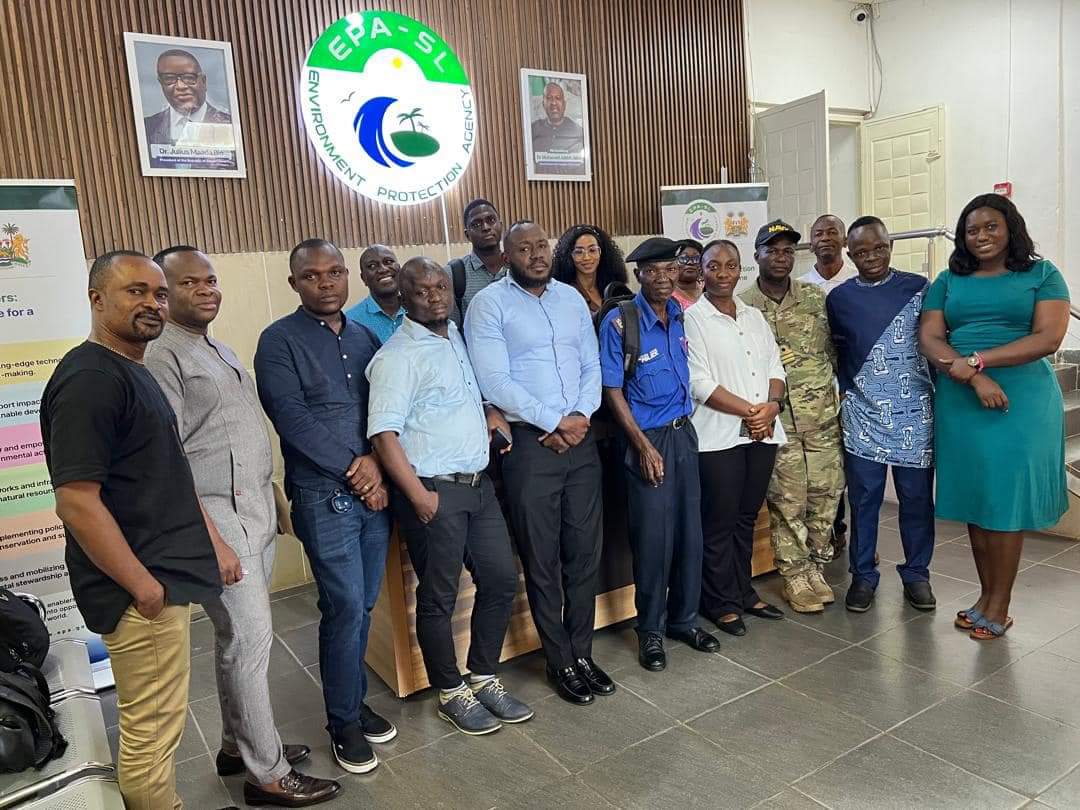The Environment Protection Agency Sierra Leone, in collaboration with the International Ocean Institute-Southern Africa, recently conducted a training session focused on marine spatial planning and its connection to the blue economy.
The training which was held on Thursday 10th October 2024, at EPA boardroom, brought together key stakeholders from various sectors involved in marine and coastal management, including representatives from the Navy, Police, National Protected Areas Authority, Maritime Administration, Ministry of Fisheries and Marine Resources, Ministry of Environment and Climate Change, National Minerals Agency, and others.
Marine spatial planning, as governed under the Abidjan Convention, provides a framework for managing oceanic and coastal spaces through integrated processes that account for ecological, economic, and social factors. It encompasses elements of the blue economy, such as fisheries, shipping, tourism, clean energy, marine biotechnology, and offshore oil and gas, all of which contribute to sustainable governance, scientific innovation, and research.
The plan seeks to optimize ocean use by balancing human activities with conservation goals, ensuring that marine resources are safeguarded for future generations.
- Samura Kamara Urges Caution in Tripartite Investment Relationship Between Government, Kingho, and ARISE IIP
- ACC Secures Conviction Against Town Chief Sahr Quee And Former Councilor Yongai of Kensay Community in Kono
- Councilor Ernest Ngenda Sama and Goal Sierra Leone Deliver Clean Water to Four Communities in Ward 346
Presentations from the International Ocean Institute- Southern Africa, Grid Arendal, and the Abidjan Convention Secretariat highlighted successful marine spatial planning initiatives in other countries, offering insights into the blue economy in Africa, the planning process, and lessons learned from pilot projects.

Sierra Leone is currently in the early stages of drafting its own Marine Spatial Plan, aligned with the conservation and coordination mandates of the EPA Act of 2022. Ongoing stakeholder consultations are helping to shape this process.
Participants engaged in discussions on topics such as institutional and sectorial priorities, capacity building, and the steps needed to develop an effective marine spatial plan for Sierra Leone.











